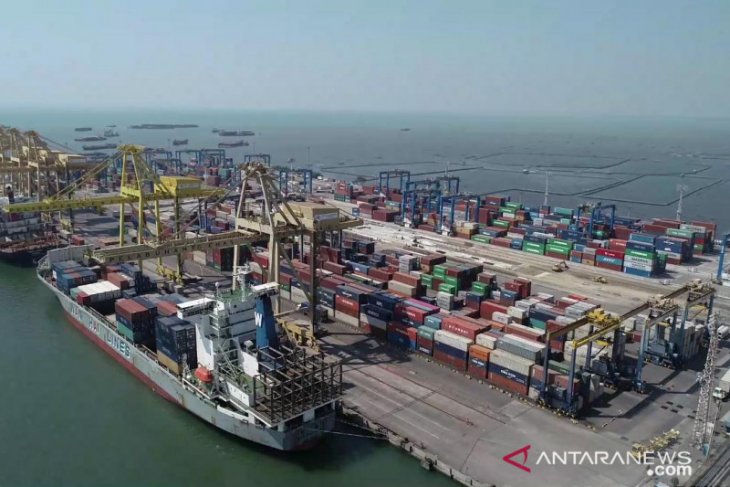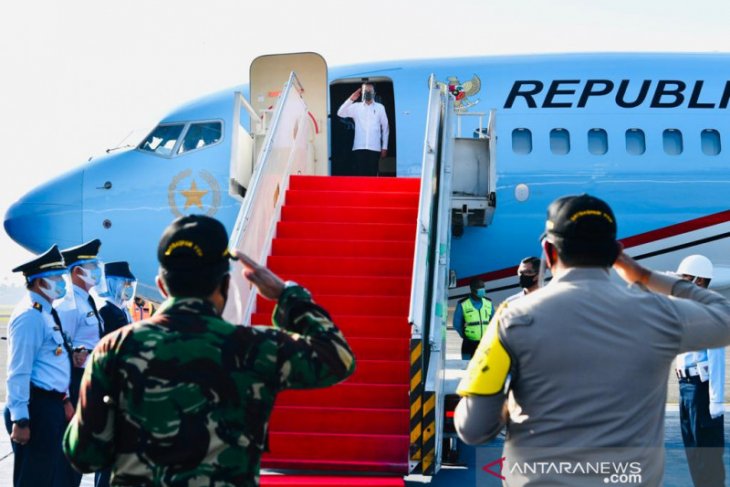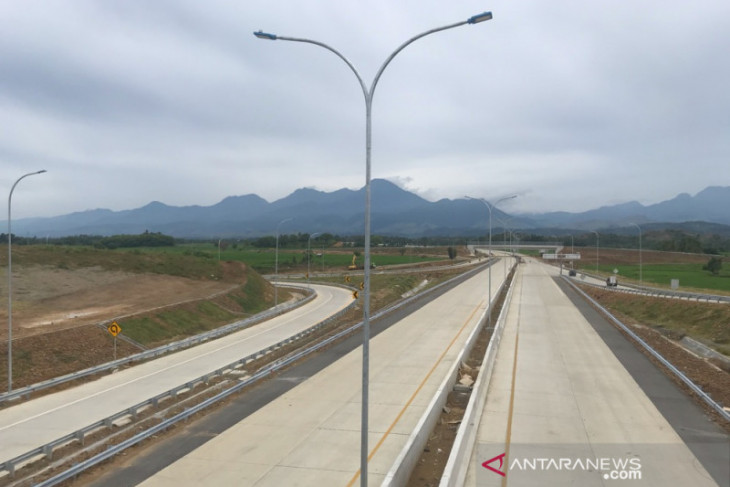Live Streaming
Program Highlight
Company Profile
Bali Authorities Postpone Plan to Allow Back Foreign Tourists
Written by Nouvarah Ahdiba
Denpasar, Bali (ANTARA) - Bali Governor Wayan Koster has postponed the reopening of the resort island to foreign tourists, which was planned for September 11, 2020, due to the continued spread of coronavirus infections.
"We have considered this, we are postponing (the reopening of Bali to international tourists) until the situation in Bali and worldwide is conducive," Koster told the press here on Wednesday.
Bali authorities had originally planned to reopen the island for tourism in three phases, starting with the decision to allow local residents to visit tourist sites in the area from July 9. The island was reopened for domestic travelers residing across Indonesia from July 31.
As part of the third phase of reopening, the authorities intended to allow international travelers back on the island from September 11.
The decision to postpone the entry of foreign tourists to the island has been driven by the increased number of COVID-19 cases and public indiscipline in observing the health protocols, Koster informed.
Koster said he has met with representatives of the Indonesian Hotels and Restaurants Association (IHRA) and asked the association to impose sanctions or revoke the licenses of members who fail to comply with the health protocols.
"The key is that we have to be disciplined and implement the health protocols for an effective handling of COVID-19," he stated.
Koster has issued a gubernatorial regulation (no. 46/2020) on law enforcement on health protocols, urging the public and tourism operators to remain disciplined in the implementation of health protocols.
August
Finance Minister Stresses on Hard Work to Attain Zero-Percent Growth
Written by Ani Hasanah
Illustration - An aerial photo of the Tanjung Perak Port in Surabaya, East Java. ANTARA/HO-PT Pelindo III (Persero)/sh
Indonesian Finance Minister Sri Mulyani Indrawati stressed on hard work to record zero-percent economic growth in the third quarter of 2020 after the GDP contracted 5.32 percent in the second quarter of the year.
"We are cautious of the heavy struggles that lie ahead to enter the zero-percent zone in the third quarter," Indrawati noted in Jakarta on Tuesday.
Some economic activities have run at a sluggish pace in July despite reversal in some sectors, she pointed out. "It can be observed from the tax payment activities," the minister remarked.
The processing industry experienced a contraction in July but at a lower rate from that in June and May.
"May recorded the deepest contraction. We are optimistic that this positive trend would continue, with an improvement in industrial activities," she added.
Improvement in the trade sector was recorded in July as compared to May during which a 40-percent contraction was recorded.
However, trade recovery in July was not as stable as expected.
"We are optimistic that July will be better than June, but in fact, it was not. This is something that we need to be cautious about in terms of trade. This will affect the recovery in public consumption," Indrawati stated.
Meanwhile, the financial services sector contracted 6.89 percent in July, from 11 percent and 30 percent in June and May respectively.
Inconsistent improvement was clocked in the construction, mining, transportation, and logistics sectors.
"This mapping has indicated that our economic recovery in July was still very fragile, and it can reverse again," she pointed out.
Hence, it is crucial to prevent Indonesia's economy from plunging into recession and to keep it in the neutral zone to recover.
"We will see if the trend in August can be maintained in the zone close to zero (percent). In this case, we still have to struggle to recover to the neutral zone," she stated. (ANTARA)
August
President Joko Widodo Inaugurates First Toll Road in Aceh
Written by Ani Hasanah
President to Aceh inaugurates the first toll road section and reviews the handling of COVID-19 (Bureau of Press of Presidential Secretariat)
President Joko Widodo inaugurated the first toll road in Aceh Province -- the Sigli-Banda Aceh Section 4 toll road -- that connects Indrapuri and Blang Bintang.
"The 74-kilometer Banda Aceh-Sigli toll road is the first in Aceh Province," President Widodo stated at the Blang Bintang toll gate, Aceh, on Tuesday.
The Sigli-Banda Aceh toll road section, also known as the Sibanceh section 4, is 13.5 kilometers long of the total length of 74.1 kilometers and is part of the Trans Sumatra Road.
"I would like to thank the governor and district heads. Land acquisition in Aceh Province is the fastest," the president noted.
The head of state also believes other provinces can emulate the method of land acquisition in Aceh.
"It is so fast. The construction can follow quickly. I think if the methods in Aceh can be applied in other provinces, all toll road construction can be completed," the president stated.
If the toll road is already operational, access to the airport will become easier and faster.
"If connectivity gets smoother and is linked to air transportation, what we will see in future is the faster movement of people and goods to make costs more efficient," the president explained.
Furthermore, with interconnected economic growth, the economy moves faster.
"We are optimistic that this new infrastructure would generate new economic points, give rise to new businesses, and lead to expansion of existing businesses. We are optimistic of raising the Aceh economy broadly, and, of course, the goal is to create several jobs," the president stated.
The head of state also advised Aceh Acting Governor Nova Iriansyah over connecting the toll road with the agricultural, tourism, and industrial centers.
"Thus, it will be truly beneficial to our people in Aceh, and we are upbeat about Aceh becoming the epicenter of new economic growth in Sumatra. Do not forget to involve micro, small, and medium enterprises," the president remarked.
In total, the Sigli-Banda Aceh toll road is divided into Section 1 extending along Padang Tiji to Seulimeum, spanning a distance of 24.3 kilometers; the 7.6-kilometer-long section 2 Seulimeum-Jantho; Section 3 Jantho-Indrapuri totaling 16 kilometers; Section 4 that stretches from Indrapuri to Blang Bintang for 13.5 kilometers; Section 5 Blang Bintang-Kuto Baro, with a length of 7.7 kilometers; and Section 6 Kuto Baro-Baitussalam that stretches for five kilometers.
Investment totaling Rp12.944 trillion will be required to develop the Sibanceh Toll Road. According to the official website of the Committee for the Acceleration of Priority Infrastructure or KPPIP, this funding scheme uses state-owned enterprises (BUMN) assignments.
Once operational, the Sibanceh Toll Road will be equipped with two rest areas and services (TIP) or type A rest area. The resting place is located at Jantho-Indrapuri KM 37 and Indrapuri - Blang Bintang KM 54. (ANTARA)
August
Infrastructure Development Aimed to Speed up Economic Recovery: Jokowi
Written by Ani Hasanah
Sigli-Banda Aceh (Sibanceh) Toll Road Section 4 of the Blang Bintang-Indrapuri toll road in Aceh Besar District, Aceh. ANTARA / Khalis
Infrastructure development is part of the government's strategies to speed up the process of the nation’s economic recovery, according to President Joko Widodo (Jokowi).
"Under such conditions, infrastructure development is one of the strategies that provide leverage to accelerate national economic recovery," the president remarked while inaugurating the Sigli-Banda Aceh Section 4 Toll Road for the Indrapuri-Blang Bintang section in Aceh Besar District, Aceh, Tuesday, as witnessed virtually.
The president cited as an example that construction of the toll road connecting Aceh to Lampung along 2,765 kilometers will encourage economic growth and equity in Sumatra.
In addition, toll road construction can boost efficiency and workforce absorption.
The head of state remarked that despite the Indonesian nation reeling from the impacts of the COVID-19 pandemic, infrastructure development will continue nonetheless since Indonesia still lags behind other countries in this area.
Underdeveloped infrastructure leads to the logistics costs becoming more expensive than those of other countries.
"This is what lowers our competitiveness in comparison with our neighboring countries," the president added. (ANTARA)



